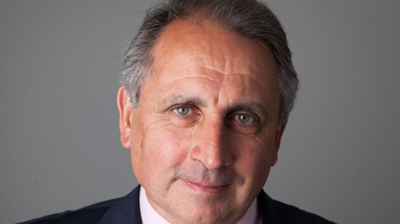The government needs to learn from existing support schemes, adapt them and re-launch the Enterprise Finance Guarantee Scheme to build on CBILS, warned the FLA at a panel discussion with small business minister, Paul Scully.
Stephen Haddrill (pictured), director general of the FLA, proposed during the discussion that liquidity support be provided for non-bank lenders who played a vital part in funding UK SMEs, a point that the Minister aims to bring up with HMT.
The FLA co-hosted the discussion with the Association of Chartered Certified Accountants (ACCA) following the publication of its Comprehensive Spending Review submission. Haddrill explained: “Business confidence remains fragile and will be dented further if the Government turns off CBILS just as we enter what could be a very uncertain autumn and winter period. There should be parity with Term Funding, which continues until April 2021.
“The direction of the UK’s recovery needs to lead to a levelling up of the regional economies to drive greater productivity, and a positioning of businesses to ultimately achieve zero emissions by 2050. In the Comprehensive Spending Review, the Chancellor has an opportunity to set this course by encouraging investment – the basis of which is the availability of finance.
“Longer term, enhancing the existing Enterprise Finance Guarantee with the key features of CBILS, such as the 80% guarantee, would channel funding to businesses for new equipment and software that would transform productivity.”
The FLA’s suggestions in the submission included that key features of the temporary CBILS scheme should be transferred to the existing asset finance variant of the Enterprise Finance Guarantee Scheme to improve its effectiveness in channelling finance to businesses for capital investment, like new equipment or software.
During the panel discussion, John Phillipou of Paragon Bank highlighted the importance of maintaining a mix of bank and non-bank lending to businesses, emphasising the local knowledge that the latter often had. He also warned of a potential cliff-edge when the repayment of CBILS loans begins.
Responding to the reports that three-quarters of SMEs had not adapted their financial plans during the pandemic, the ACCA representatives also stressed the need for more government funding to underpin advice and mentoring for SMEs.
Net zero emissions challenge
In the FLA’s Comprehensive Spending Review submission, it advised the government to increase the take up of ultra-low emission vehicles by allowing lenders to offset the purchase price of electric vehicles against their tax position. This is thought to enable the lenders to offer more competitively priced finance or rental payments for ultra-low emission vehicles, putting them within the reach of more consumers and fast tracking the UK’s progress towards zero emissions.
During the discussion with the Minister, Haddrill highlighted the importance of finance to facilitate the roll-out of cleaner vehicles, suggesting that the Government could use the capital allowances regime to support this.
Mike Hawes, chief executive officer of the Society of Motor Manufacturers and Traders (SMMT) added that a long-term approach to taxes and incentives for low emission vehicles was essential to provide certainty for businesses and their customers. Points raised from the floor included the need for plug-in grants for non-car commercial vehicles and for a strategy which included hydrogen technology, which Scully said the Government was already considering.


